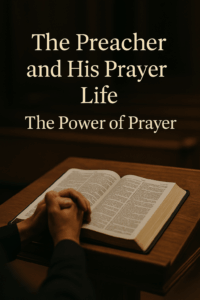⏱️ Estimated Reading Time: 13 min read
God’s Glory Through Our Weakness
“Therefore I am well content with weaknesses, with insults, with distresses, with persecutions, with difficulties, for Christ’s sake; for when I am weak, then I am strong” (2 Corinthians 12:10, NASB). The Apostle Paul, in rebuking the pride that had crept into the Corinthian Church, went out of his way to recount the hardships and trials he faced. He laid his heart bare before the Corinthians and told them not how great and mighty he was, but how weak he was. He told them of all the trials, fears, tormenting dreams, and abuses he endured. He rebuked the Corinthians’ glorying in mighty, self-promoting men and told them to glory only in the Lord.
Paul himself may have had Autistic traits and possibly also had Asperger’s Syndrome. For example, the way he wrote is the same style autistic authors tend to write. (Writing style has been used to tentatively diagnosis such men as Thomas Aquinas with Autism.) His epistles reveal very finely detailed long thoughts. He was blunt and thought in rigid categories. He was not impressive in public and evidently had trouble with posture, public speaking, and social engagement (2 Corinthians 10:10). His lack of social skills were exploited by the “super-apostles” at Corinth, who boasted in their natural abilities and presence. In addition to all this, Paul most likely had PTSD from being stoned and beaten.
Paul responded to these boasters by glorying in his frailty and trials. He did so because all the glory went to God. Paul was weak and afflicted, but his God was powerful. Even the gifts Paul had, an incredible memory and intellect, a lineage from Benjamin, self-control, and wisdom from youth, he counted as nothing in order to gain Christ. What could bring him glory was nothing. Not only did God give him his gifts, God worked through His weakness.
It was the very things which abased Paul that the Lord used for His kingdom. In this way, God gained all the glory. As my friend Astrophysicist Hugh Ross, who himself has Asperger’s Syndrome, often says, “We are all broken vessels. God doesn’t mend the cracks. He lets His glory shine through the cracks.”
Until Paul was humbled, no longer focusing on his lineage and law-keeping, he was not the great apostle we remember. When he was brought low is when God worked through him, displaying His glory. In the same way, the gifts we are all given are not ours, they belong to God and for His glory, as He works through our weaknesses. Let us all boast in the Lord alone and ask Him to glorify Himself through us.
Autistic people are weak. We stumble through the world of social interactions and business like a person wandering through a dark tunnel on a cloudy night. We struggle to make sense of this alien place around us and too often pull back from it in confusion, pain, and anger. A better way is to seek the Lord’s help that we may be a blessing to His Church and creation. With His working in us, we can offer to Him from what is His already-the strengths and gifts we have. Autistic people should be counted as valuable members of Christ’s body, able to serve and bless the Church as we are served and blessed.
The Strengths of Autistic People
People with Autism have natural strengths and abilities because of our different brain wiring. While our brains are wired in such a way that we struggle with social skills, symbolic language, and motor skills, they compensate for those deficiencies in other areas. We thus tend to have abilities which Neurotypicals (those with an “average” nervous system) tend to lack or be weak in.
Specifically, people with Autism tend to have excellent, long-term memories and fine-tuned pattern recognition capabilities. We have an ability to hyper-focus upon and quickly absorb large amounts of information on particular subjects of interest. Our senses are heightened more than the average person’s, which is both a blessing and a curse. We tend to be honest and straightforward with people, not seeking to sugarcoat or deceive. While we have trouble making our empathy known, Autistic people usually have very deep empathy and feel others’ emotions.
Memory
People with Autism generally have an excellent memory and retention skills. This applies to those of us who think in pictures as well as to those who think in words or lines. We tend to remember most of our lives in fine detail. We remember and retain events, experiences, and words. We tend to have photographic memories, meaning most of us when we have a memory of a place or event see a perfectly clear picture or video in our minds.
I can remember most of my life from about the age of four and play it like a videotape in my head. I remember conversations I had twenty years ago! Our ability to memorize large amounts of information and remember events can be a benefit to the Church. When left unrecognized by Autistic or Neurotypical Christians, this gift may be wasted or even become negative. This is because having a good memory means we also remember bad things and situations which would threaten to pull us into depression and anxiety. But when healed with God’s Word of hope in the gospel and submitted to Christ, this gift can be used for His glory.
Autistic Christians can use their memories to help in teaching Sunday School and reading Scripture. Our memories can aid us in teaching well and answering listeners’ questions, provided we have studied the material we are teaching on. In a ministry that could also help us develop our social skills, Autistic Christians can remember Scripture and sermons and reach out to those within or without the Church and point them to Christ with what they have retained in their minds. What they have retained can often be used without their needing to carry around notebooks or Bibles!
Another ministry which a strong memory helps with is music. Autistic peoples’ natural ability to retain memories helps us pick up many songs without having to hear them too many times. This can be put to use in Church choirs, solos, and visitations to nursing homes or elderly Christians. This musical memory can lead to many opportunities for a ministry of encouragement.
Detail and Pattern Recognition
We also usually have great attention to detail and pattern recognition. We can typically pick up on errors in writing and deviations from patterns or lines with great ease. Because of attention to detail, we also can have good organizational skills, though sometimes our organization may not be as expected but based, for example, on color.
The Autistic attention to detail and pattern recognition can be used in a number of practical ways. Some people with Autism are more numbers oriented, and some are more words oriented. Those who are more numbers-oriented would do well as accountants and bookkeepers for the Church. If they also are skilled in making things, they can help design and build needed parts of the Church or be brought along on mission trips to help build Churches.
Autistic Christians who are more words oriented may be skillful at designing and preparing Church websites. They may be able to use their gift by designing flyers, bulletins, and tracts. They could be an asset to the Church by writing books and essays on theology, spiritual life, and related topics. There is a great need in all denominations for translations of theological and spiritual works. There is also still a great need for Bibles to be translated into hundreds of languages. A Christian with Autism who loves languages would do well to consider applying their gift to Bible translation.
Senses
Heightened senses are caused by increased serotonin. Autistics have several times more serotonin than non-Autistics. Increased senses can turn what most people feel is a peaceful environment into an overwhelming and stressful one.
A heightened sense of smell will shock the system and can cause difficulty in performing tasks or eating food if a smell is overpoweringly offensive. A heightened sense of sight can make surroundings seem too bright, too dark, or confusing. A heightened sense of hearing causes Autistic people to often not be able to stand being in an environment with people or tools, and need to be alone just function. Hypersensitive hearing makes even quiet voices sound loud. It makes people who naturally talk loudly sound like they are yelling and potentially threatening. A heightened sense of feeling can cause different surfaces and interpersonal contact to be very uncomfortable for those with Autism. A heightened sense of taste, along with heightened smell, is probably behind the eating difficulties some Autistic people have. What tastes average or bad but tolerable to a Neurotypical may be intolerable and overbearing to an Autistic person.
All these increased senses combined to make an overwhelming and crushing world. The world we walk in is extreme and intense. The smallest thing can shock us or drive us to seclusion and flight from a world that is too stressful to cope with. Our heightened senses, especially when combined or when we are already stressed from life, can cause us to become nauseous, dizzy, or tingling. The sensations that may be comforting or mundane to others can cause us pain and confusion, forcing us to flee from the world in order to survive and think properly. Those around us, with nervous systems that can better handle the environmental input, will usually be confused as to why we find our surroundings overwhelming. The environmental stress can deteriorate our health and lead to anxiety, depression, or addictions.
On the other hand, our heightened senses give us unusual perceptive capabilities. The reverse side of the world being unusually offensive, smelly, disgusting, jarring, and overwhelming is that it can also be unusually clear, beautiful, strong, and vibrant. A singing bird, a musical setting, a scenic landscape, can capture us and grip every bit of our soul and body. The intensity of beauty and depth in a voice, a song, or a mountain can bring peace and restore wholeness to a sense of being shattered by a disturbing, violent feeling world around us. We can perceive the minute and striking details of sound, color, shape, structure, and express their meaning in rich and effective ways.
This gift that is also a curse and ability, which is also a disability is useful for ministry. Combined with our usual attention to detail, Autistics can produce excellent works of art for the Church. While this will look different in a Reformed Church and an Orthodox Church, art of great depth, meaning, and intricacy can be produced by Autistic Christians with artistic talent. This ability is augmented by and may often come from the intensity of our senses.
Our heightened senses, combined with musical talent, can be used to produce and sing songs with great proficiency. In Reformed Churches, this gift can be used to make new and touching settings for the psalms and playing the organ. In Catholic and Evangelical Churches, this gift can be used in producing hymns and playing musical instruments. In Orthodox Churches, this gift can be used by placing people with Autism as readers and chanters.
All these heightened senses can, within a Christian framework, help us to perceive, to grasp the beauty and depth of God’s creative and redemptive works deeply. This can, in turn, be used to express in vivid terms God’s Being, character, and works as revealed in Scripture and nature. Autistic people can do so in unique ways, bringing vibrant perspectives to the Church.
Honesty and Empathy
Autistic people are usually honest to the point of blunt. We are also typically good at listening to and sympathizing with others, feeling their emotions. This means within the Church, Autistic Christian who have spiritual wisdom and maturity can serve the Church in areas of encouragement and counseling.
I have had a number of people, whom I did not know or hardly knew, confide personal struggles and pains to me. We are able to hear people’s struggles and seek to help them. In helping with spiritual growth, we will tend not to be afraid to tell them exactly what they need to hear but will also be able to sympathize with them and give them words of hope and encouragement. Our difficulties with social interactions and reading body language can be overcome in counseling and friendships by being open that we have trouble expressing the empathy we feel. If we don’t understand their body language, we can be open and tell them we don’t understand their expression or posture. This can, in fact, help get what people are thinking but unwilling to say out of them more quickly!
In light of these things, Autistic Christians should be encouraged to form friendships, speak words of encouragement, and help with counseling. In Reformed and Evangelical Churches, an option would be to pursue Christian or Biblical Counseling. In Catholic and Orthodox Churches, aside from private ministering of encouragement Autistic people could be priests. This is especially an option if they had assignments dealing mostly with teaching and hearing confessions. Matthew Schneider is an example of a priest with Autism.
Conclusion
God is glorified in our weaknesses and trials. He allows us suffering and struggles to humble us and drive us to seek Him and serve Him. He has also given us gifts, which if we submit to his providence, He will use to His glory. He is thereby glorified through us-broken vessels.
The Church should not overlook her women, her little children, her elderly, but should seek to use every part of the Body for the building up of the Whole. In the same way, Autistic Christians should not be overlooked or considered unable to serve. The Church should encourage Christians with Autism to glorify God through their strengths and bring the healing word of grace to our wounds and weaknesses. Autistics can bless the Church with the particular abilities and gifts that we have because of their Autism. Without our weaknesses we would not have our unique strengths.
Every Autistic person (and every person in general) has different gifts, strengths, and interests. These are just some suggestions and guidelines for utilizing the strengths of Autistics for the edification of the Church. The applications will differ based on the individuals, local Churches, and denominations. May these thoughts be an encouragement and used to God’s glory.




